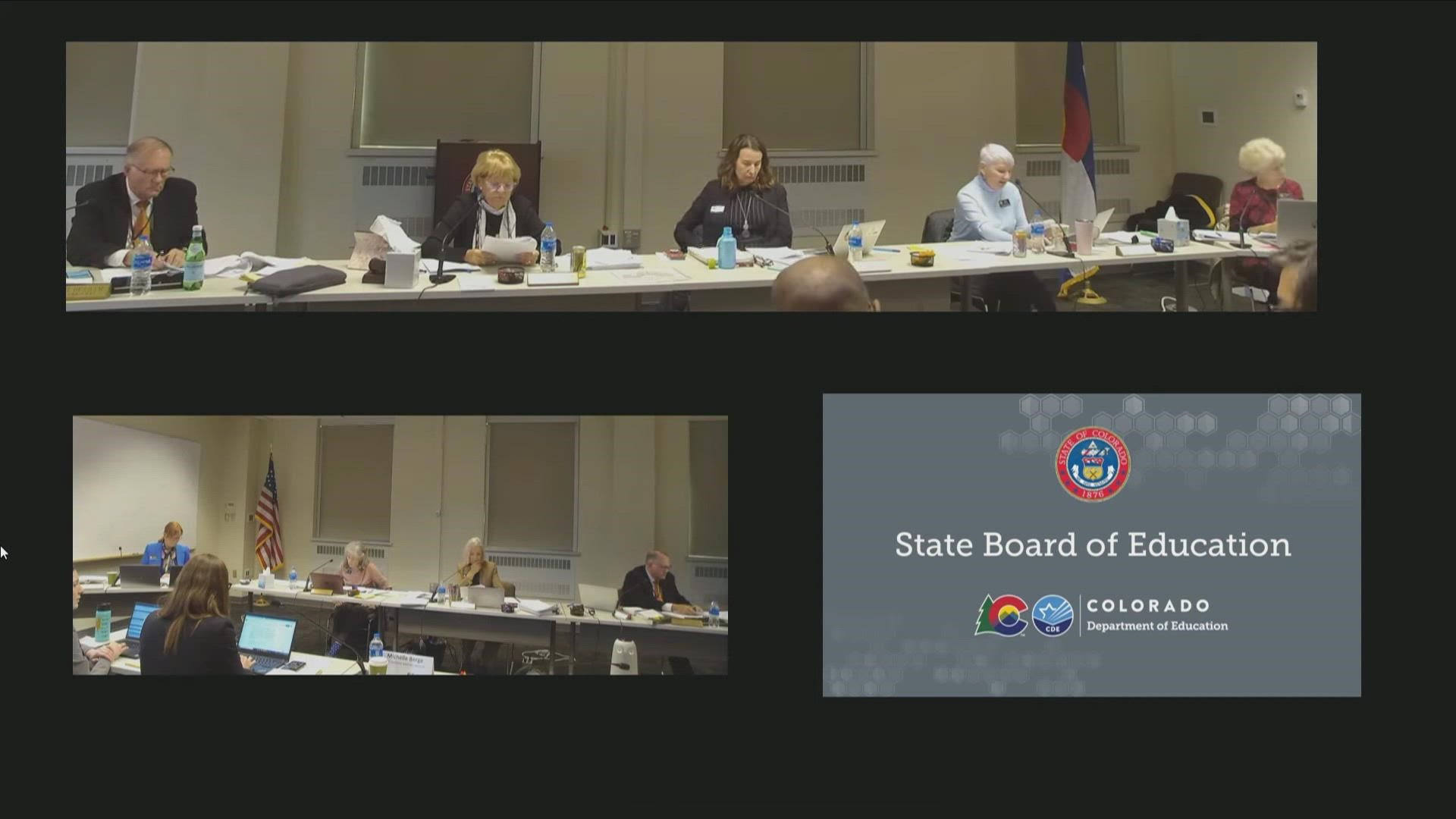DENVER — Starting next school year, there will be changes to how Colorado's students learn state history and U.S. history.
Thursday night, the Colorado State Board of Education finalized and approved new, more inclusive social studies standards.
The new standards followed a state law, passed in 2019 (HB1192), that requires public schools to include the historical, cultural, and social contributions of several minority groups when teaching history and civil government of the United States and the state of Colorado.
For months, the board has worked through revisions and debates about what, exactly, should be included in the new standards. Early drafts listed several specific minority groups by name. After criticism from some conservative board members and parents claiming the standards were too divisive or not age-appropriate, a review committee cut back on some of the language.
A June version of the standards eliminated any reference to LGBTQ groups in third grade and younger. Words like “diverse perspectives” replaced many specific mentions of African American, Latino, Asian, and Indigenous groups. That prompted more criticism, from organizations and people across Colorado, who called for the board to add those cuts back into the final draft.
Amendments introduced during Thursday’s meeting attempted to address some of those concerns.
The board approved several amendments from board members Dr. Lisa Escarcega (D-District 1, Denver) and Karla Esser (D-District 7, Lakewood), who added language naming specific minority groups back into the latest revisions, including Hawaiian/Pacific Islander.
“I think that what we brought back in, we were methodical about it,” said Escarcega after the vote.
“I think what we brought back into standards, in general, reflects most of what we heard. Parents, teachers, students that came to meetings or sent us many, many letters. So I think it reflects the values of the individuals that provided us feedback.”
Among those minority groups. the LGBTQ community is mentioned at every grade level in the final standards version. Community members fought for that, after an earlier revision cut them out.
“This vote today we know we are creating a more inclusive environment for LGBTQ folks and all students,” said Garrett Royer, Deputy Director of One Colorado, a statewide LGBTQ advocacy organization. Royer called Thursday's votes “a win.”
“And that's significant because we know there’s been this national effort to remove the contributions and language around LGBTQ folks, and that's just really damaging. LGBTQ representation is so, so important.”
Board member and Vice Chair Steve Durham (R-District 5, Colorado Springs), said he was still uncomfortable with some of the LGBTQ content for certain age groups. Although some board members tried to argue that standards are not about sexual education, but rather, inclusion of minority groups' contributions, Durham said he has examples and videos, where he says schools went too far.
He said he considered showing a video during the meeting Thursday, which he said shows a drag queen performance at a school library in front of children. Durham said he considered that “almost child abuse, per se.”
“I will vote no on these standards, because I think they are anti-parent, they introduce items into discussion in schools that are sometimes age appropriate, sometimes not age appropriate. And there’s been no attempt by Dr. Escarcega to separate age appropriate from age inappropriate.”
During public comment Thursday, the majority of speakers asked for more inclusion – not less. The board heard from students who identified as transgender, from parents who said they wanted their child’s education to reflect their own family, and from educators who asked for more inclusive guidance in their lesson plans.
Beyond the various amendment votes, the board cast two broad votes: One to approve the Social Studies Standards revision adhering to HB1192, and one to approve the Social Studies Standards revision full document. Both of those votes passed along party line votes, with Democrats leading 4-3 over Republicans.
Social Studies Standards are not formal curriculum. They set a “floor,” that each district can use as a guideline to set curriculum. Board members said the new standards will go into effect next school year (2023-2024).
“[Each district’s curriculum team] looks at their own curriculum to see where there’s misalignment or if they have to further align,” Escarcega explained. “They will present that to their [school] boards in general. They also have opportunity for parents to come in and review. Once they fine tune they’re ready to go, then start working with teachers. Teachers need tools for some of these things they maybe haven’t taught before.”
SUGGESTED VIDEOS: Education stories from 9NEWS

